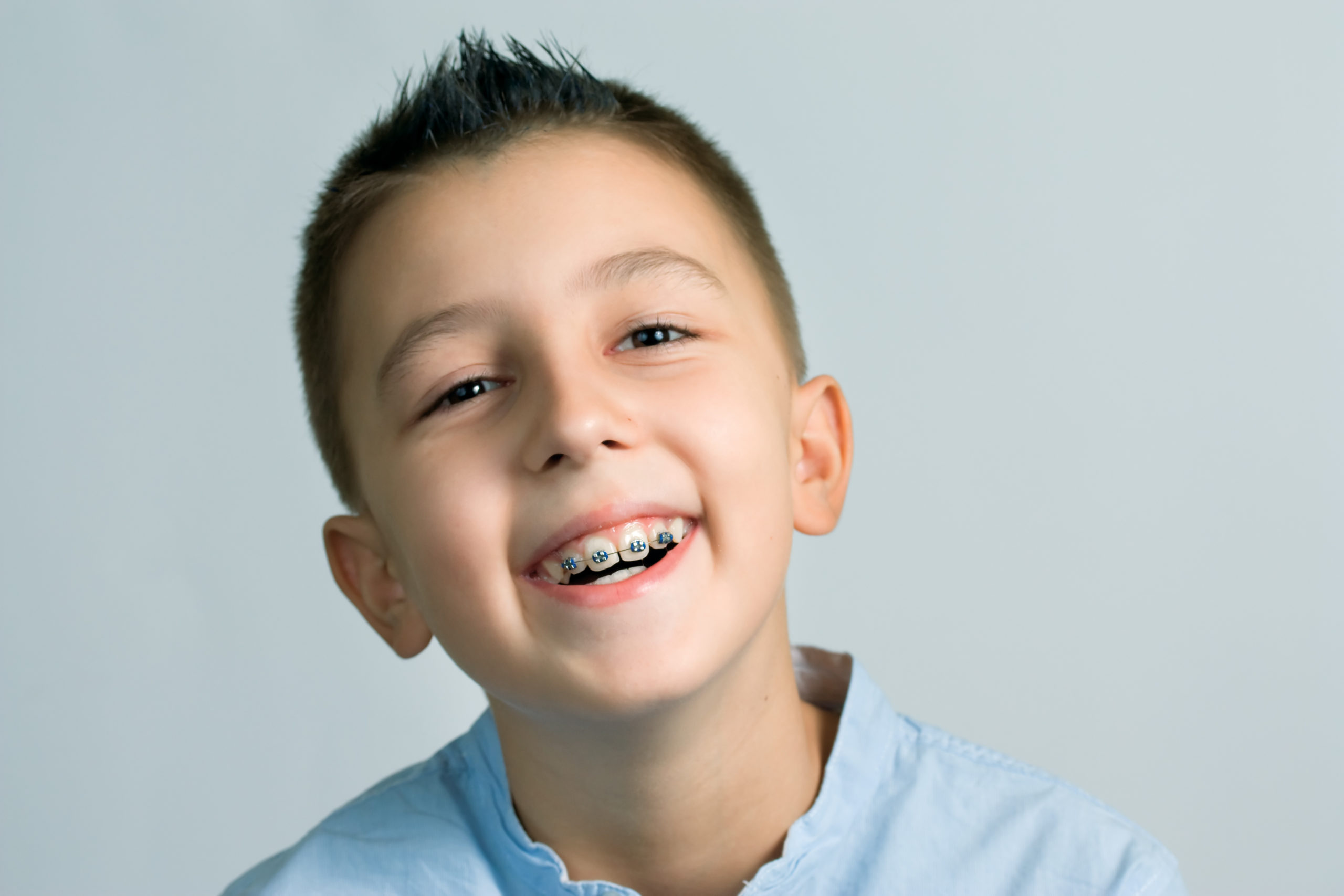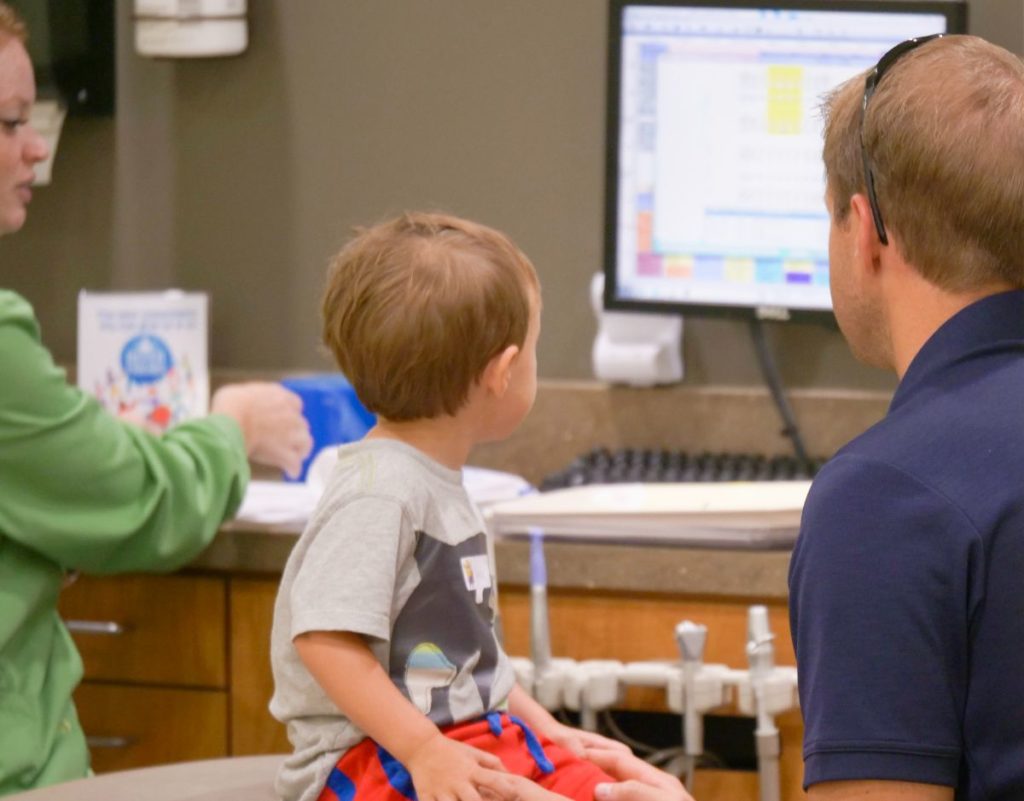
You can never be too young to learn about good dental hygiene! ‘Tooth’ be told, it is one of the most important life lessons for any young person because as we learn and grow, we become used to the habits that we form – for better or worse.
Our Children’s Dental Center team has years of experience teaching our patients the importance of setting good oral hygiene habits from the very beginning. We want to make sure they gain the skills that will keep their teeth healthy all their lives, so keep reading to find out the benefits of preventive dentistry and how you can get started on a healthy smile as soon as today!
What is Preventive Dentistry?
Although this term may sound a little complex, it has a straightforward meaning: preventive dentistry includes any practice that helps you take care of your teeth from the day that your first tooth comes in well into old age. It is easier to think of this practice as a set of habits that fine-tune your smile, keeping up with the maintenance work that ensures your teeth are white, shiny, and functional!
About half of the work of preventive dentistry comes from your dental check-ups, and half comes from your routine. Let’s learn a little more about both sides of the preventive spectrum.
Your Role
As a parent, your role is to make sure that your child implements the healthy habits they are learning at the dentist every day. This includes brushing their teeth twice per day with a fluoride-based toothpaste, flossing once per day, and using a fluoride-based mouthwash to rinse their mouth at least once per day. The bulk of smile maintenance comes from these everyday habits that start at home.
You should also begin to guide them away from sugary or acidic foods that can cause the buildup of plaque, cavities, or wear down the enamel on their teeth. If your child is active in athletics, make sure they wear a mouthguard to prevent chipped teeth while playing.

Children’s Dental Center’s Role
Your dentist’s role is equally as important as your own when it comes to preventive dentistry practices. When your child’s first tooth comes in, they are ready to begin seeing a pediatric dentist every six months for regular checkups. At these appointments, you can expect a teeth cleaning and x-rays to keep up with your child’s tooth development over time.
preventive dentistry on the dentist’s side may also include applying sealant or fluoride to your child’s teeth, fitting athletic mouthguards, or even referring your child to an orthodontist to straighten or adjust misaligned teeth.
FAQ: What is a Sealant?
A sealant is a composite material we apply to the chewing surfaces of the back teeth. This is where the majority of cavities in children form. The sealant acts as a barrier to food, plaque, and acid, helping protect areas of the teeth prone to decay. They can be an excellent tool for preventive care, and we recommend them often for permanent teeth that are free from decay. A dental sealant has proven to be approximately 80% effective in protecting teeth from chewing surface cavities. It is important to note that cavities between the teeth will not be protected by sealants, so regular brushing and flossing are still necessary.
FAQ: Why is fluoride so important?
Fluoride is a dental lifesaver. It helps keep the enamel on your teeth strong and sturdy. Most water filtration systems add fluoride to their water so that our teeth absorb this strengthening tool, but it is also essential to use fluoride-based toothpaste to supplement the fluoride found in water. For children, fluoride applications are critical to ensure that the teeth continue to grow strong and sturdy.
Benefits of Preventive Dentistry
As a tool for preventing damage to teeth, it will come as no surprise that there is a range of benefits that make the healthy habits above very appealing to parents.
Reduces the Risk of Cavities
Cavities are every parent’s worst dental nightmare – okay, maybe not the worst, but it is certainly high on the list. The culprit is the buildup of plaque that develops on a person’s teeth after eating sugary or acidic foods. These foods can leave a film on the teeth that feels a little fuzzy or even rough. The bacteria that live in plaque use the sugars left on your child’s teeth to produce enamel-eroding acids. Typically, plaque is cleaned off when your child brushes their teeth either in the morning or at night – which is why it is so important to maintain the habit twice daily.
Reduces Long-Term Expense
Dental maintenance is an investment in your child’s smile over the long term. Without proper dental care, many issues can occur that are much more costly than regular checkups and high-quality toothpaste and dental floss. Cavity fillings can cost up to $100 and fixing a chipped tooth up to $5,000, whereas your child’s regular dental checkup is likely covered under insurance. Making an investment on a maintenance level can prevent the need for a larger investment down the road.
Overall Health Improvements
Our oral health is closely related to our general physical health. Our mouths are gateways to our digestive and respiratory tracts. Whatever bacteria grows on your teeth and isn’t brushed or cleaned off at a dental appointment could spread throughout the body. Preventive dental care will ensure your child’s health is in tip-top shape!

Defense is the Best Offense
Just like in sports, Children’s Dental Center knows that defense is the best offense. Likewise, the best prevention plan starts early on in your child’s life and anticipates potential risks along the way. The great news is that you are not alone on the journey to teaching your child how to maintain good dental hygiene habits! The team at Children’s Dental Center has years of experience working with children, so set up an appointment to talk with one of our dentists today!
 Request an Appointment
Request an Appointment